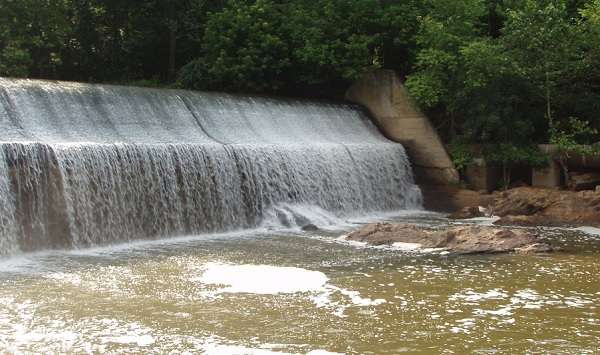NOAA awards $8 million for coastal resiliency investments across the nation

NOAA Fisheries is pleased to announce $8 million in recommended funding for 11 shovel-ready coastal resiliency projects in various sites across the country. These awards are part of NOAA's continued commitment to build resilient coastal ecosystems, communities, and economies.
"Americans who live on the coast face enormous risks when Mother Nature strikes; however, it is natural infrastructure—wetlands, marshes, floodplains, and coral reefs—that often serve as our best defense. The selected projects will restore our natural barriers and help keep people, communities, and businesses safe," said Eileen Sobeck, assistant NOAA administrator for Fisheries.
Six projects aim to restore critical wetlands, marshes, and floodplains in Massachusetts, California, Washington, and Hawaii, which increase resiliency and offer flood protection for homes and businesses:
- The Confederated Tribes and Bands of the Yakama Nation will receive $250,000 to restore floodplain connectivity in the Teanaway Community Forest which will reduce peak flows and recharge groundwater for the nearby community and enhance streams for salmon by reducing water temperatures.
- Ducks Unlimited will receive $1.5 million to transform 710 acres of former salt evaporation ponds in South San Francisco Bay into marsh and upland habitat which will increase resiliency to sea level rise and flooding.
- The Nature Conservancy will receive $721,095 to support coastal habitat restoration on the Hawaiian island of O'ahu through invasive species removal, native species replanting, and traditional management practices to strengthen ecological and community resilience.
- Port Gamble S'Klallam Tribe will receive $1 million to restore the tidal connection between Kilisut Harbor and Oak Bay, Washington. This effort will provide passage for endangered juvenile salmon, and enhance cultural traditions of fishing and clam digging.
- The Redwood Community Action Agency will receive $1,091,045 in funds to support a multi-phase project to enhance Martin Slough in Northern California which will reduce flooding on surrounding public and agricultural land and improve habitat for threatened salmonids.
- The Town of Yarmouth, Massachusetts will receive $633,044 to replace a degraded and undersized bridge on a major transportation corridor in Cape Cod and allow for restoration of the estuary to reduce flooding for property owners caused by storm surge and also improve fish passage.
Two projects focus on coral reef restoration efforts in Florida and in Hawaii to help sustain many economically-important fisheries and natural barriers to storm surge:
- The Coral Reef Alliance will receive $842,782 to reduce the flow of water and levels of nutrients and sediment that reach nearshore coral reefs off West Maui. In applying best management practices, the project will increase these reefs' resilience to climate changes.
- The University of Miami will receive $521,920 to restore coral reefs across Miami Beach and Key Biscayne which will improve the resiliency of threatened staghorn and elkhorn corals to sea temperature changes.
Three projects focus on dam removals in Massachusetts and Maryland to remove unnecessary or unsafe structures and restore critical fish passage:
- American Rivers will receive $1 million to work with partners to remove the Bloede Dam (near Baltimore, Maryland) which will enhance the natural resiliency of the Patapsco River Valley and restore 65 miles of spawning habitat for herring, shad, eel, and other species.
- The Massachusetts Department of Fish and Game will receive $212,871 as part of a partnership to remove the Carver Cotton Gin Dam, which will remove a safety hazard and open 13 miles of riverine corridor for migratory fish like river herring and eel.
- The Town of Scituate, Massachusetts, will receive $192,566 to remove the Hunter Pond Dam, which will open five river miles for fish species that have been in decline for centuries, including the American eel, river herring, and rainbow smelt. Removing the dam will eliminate the potential for dam failure that would cause flooding and close a road.
Provided by NOAA Headquarters